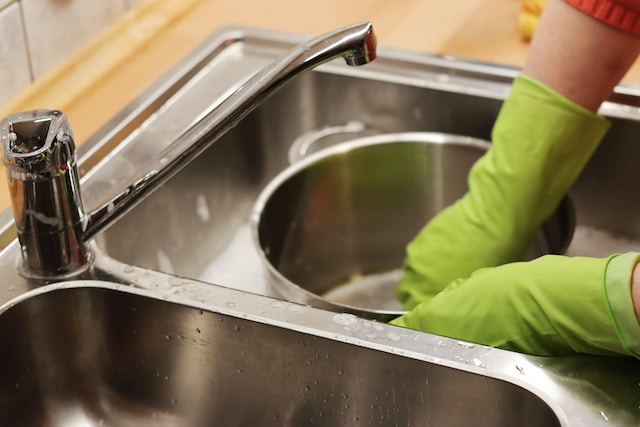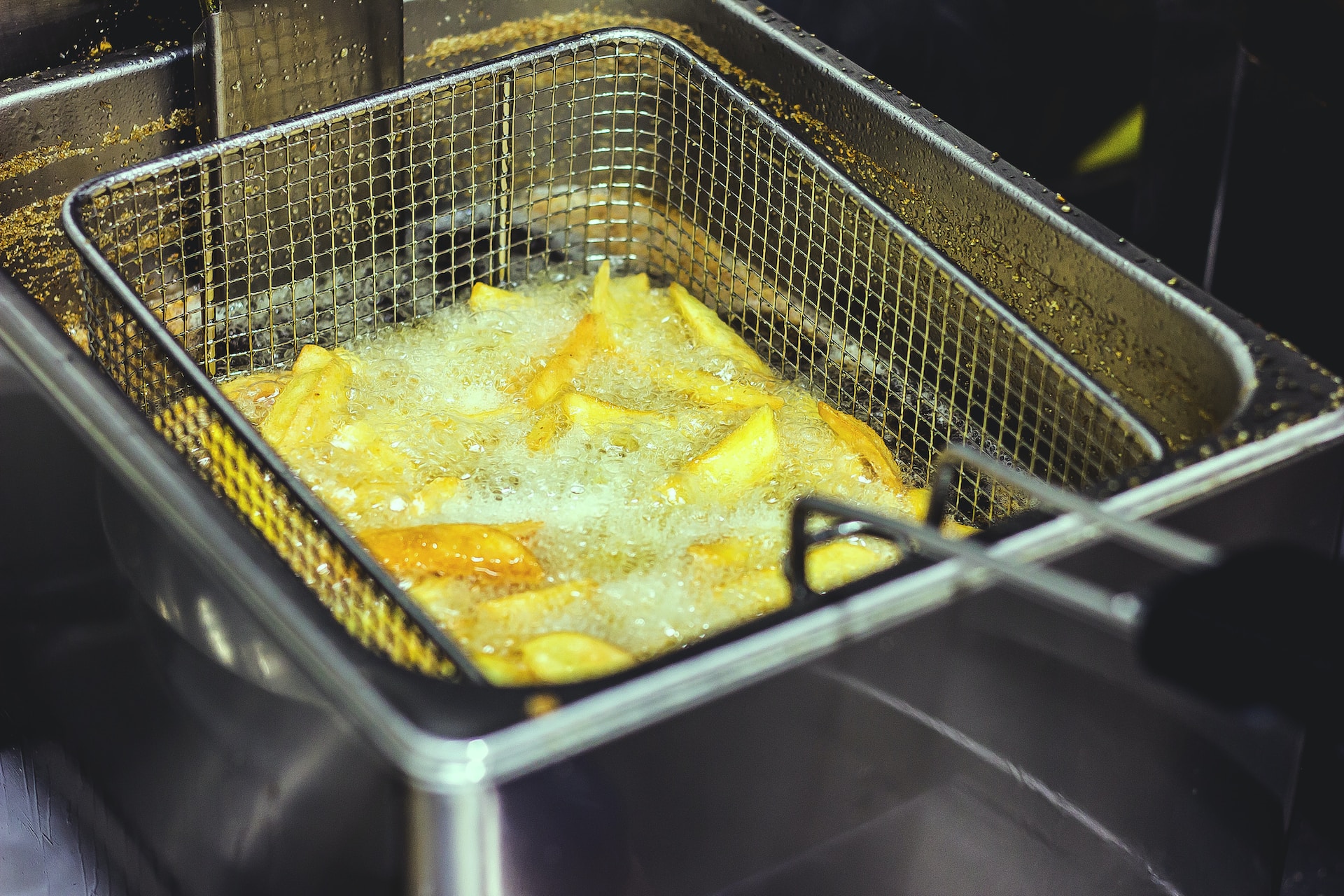Restaurants have a lot of decisions to make when it comes to the best practices for their business. One of the decisions they need to make is whether to use a dishwasher or wash dishes by hand. While dishwashers are often thought of as the most efficient option, many restaurants choose to wash dishes by hand. In this article, we will explore the reasons why restaurants choose to wash dishes by hand.
Benefits of Washing Dishes by Hand
Washing dishes by hand may seem old-fashioned or inefficient, but it has several benefits that make it a preferred method for many restaurants. Here are some of the key benefits:
- Better Control over Cleaning Process Hand washing dishes allows for more control over the cleaning process. A dishwasher may not always remove all debris or residue, but washing by hand allows the cleaner to feel for any remaining food or grime and ensure a more thorough clean.
- Reduced Risk of Breakage Dishwashers can be rough on dishes, causing chips, cracks, or breakage. Washing dishes by hand provides a gentler touch, reducing the risk of damage to the dishes.
- More Eco-Friendly Using a dishwasher requires a lot of water and energy to operate, which can be wasteful and costly. Washing dishes by hand uses significantly less water and energy, making it a more eco-friendly option.
- Increased Hygiene Washing dishes by hand allows for more attention to be paid to hygiene. Hot water and soap can kill bacteria, and washing dishes separately from food prep areas can help prevent cross-contamination.
- Cost Savings Dishwashers can be expensive to purchase and maintain. Washing dishes by hand is a more cost-effective option for smaller restaurants or those on a tight budget.
- More Control over Inventory Washing dishes by hand also provides more control over inventory. A restaurant may only have a limited number of dishes or utensils, and washing them by hand allows the restaurant to keep a better eye on inventory and make sure they always have enough clean dishes on hand.
Overall, while it may take more time and effort, washing dishes by hand provides several benefits that make it a worthwhile option for many restaurants.
Sanitation Regulations
Sanitation is of utmost importance in the food industry, and many health departments have regulations in place to ensure that restaurants maintain high levels of hygiene. In most cases, restaurants are required to wash dishes at specific temperatures, and commercial dishwashers are required to meet certain standards. However, handwashing dishes can provide a level of control that automated dishwashers cannot match.
Handwashing dishes allows restaurant staff to have complete control over the cleanliness of each dish, ensuring that every piece of cutlery and crockery is thoroughly cleaned and sanitized. Additionally, handwashing dishes reduces the risk of cross-contamination as each dish can be washed separately. By washing dishes by hand, restaurant owners can maintain a safe and healthy environment for their customers and staff.
Cost Considerations
Cost considerations play a significant role in restaurant operations, and dishwashing is no exception. While it may seem that handwashing dishes is more expensive, it may actually be more cost effective than using a machine in some situations. Dishwashers are a significant investment for a restaurant, and they require maintenance, repairs, and the cost of electricity or gas to operate. Additionally, the chemicals used in dishwashing machines can be costly and must be regularly replenished.
In contrast, handwashing dishes requires only soap, water, and manpower. A restaurant can easily adjust its staffing levels based on the number of dishes that need to be washed, and there is no need to invest in expensive equipment.
Furthermore, handwashing dishes can reduce breakage and extend the life of the dishes. Dishwashers can be harsh on plates and glasses, leading to chips, cracks, and scratches. Handwashing allows for more careful handling of dishes, ensuring that they last longer and need to be replaced less frequently.
Environmental Factors
In addition to the benefits of hand washing dishes for sanitation and cost, there are also environmental factors to consider.
- Water Conservation Washing dishes by hand can save a significant amount of water compared to using a commercial dishwasher. Commercial dishwashers use an average of 3-5 gallons of water per cycle, whereas hand-washing dishes use only 3-5 gallons of water for an entire sink full of dishes. This is because commercial dishwashers require a constant flow of water, whereas hand-washing dishes only use water when necessary.
- Energy Conservation Commercial dishwashers require a significant amount of energy to operate. They use electricity to heat the water and run the dishwasher itself. By washing dishes by hand, restaurants can reduce their energy consumption and lower their carbon footprint.
- Chemical Usage Commercial dishwashers require the use of chemicals such as detergents, rinse aids, and sanitizers. These chemicals can be harmful to the environment and can contribute to water pollution. Hand-washing dishes can reduce the use of these chemicals and their impact on the environment.
- Sustainability Washing dishes by hand can be seen as a more sustainable option for restaurants. By using less water and energy, and reducing the use of chemicals, restaurants can position themselves as environmentally conscious businesses. This can be attractive to consumers who are increasingly concerned about sustainability and the environment.
Overall, washing dishes by hand can have a positive impact on the environment and help restaurants to position themselves as sustainable and environmentally responsible businesses.
The Role of Human Labor
Another reason why restaurants continue to wash dishes by hand is the importance of human labor in the restaurant industry. While automation and technology can make some tasks easier and more efficient, the personal touch of human labor cannot be replicated.
In many restaurants, dishwashing is seen as an important part of the team effort. It is a task that everyone helps with, from the chefs to the servers. By washing dishes by hand, restaurants are able to create a sense of community and shared responsibility among their staff. This can help to improve team morale and make everyone feel like they are an important part of the operation.
Furthermore, dishwashing can also be seen as a training ground for new staff. By starting in the dishwashing area, new hires can learn the ins and outs of the restaurant and gain valuable experience. This can help them to understand how the restaurant works and make them more effective in their roles down the line.
Finally, washing dishes by hand can be seen as a way to maintain the art and craft of cooking. Just as many chefs take pride in preparing dishes from scratch and using traditional techniques, hand-washing dishes can be seen as a nod to the importance of craft in the culinary world. By keeping this tradition alive, restaurants are able to maintain a sense of authenticity and connection to the history of cooking.
Overall, the role of human labor in the restaurant industry cannot be overlooked. While automation and technology may be tempting, there is still a place for the personal touch that comes from washing dishes by hand. This helps to create a sense of community among staff, provides valuable training opportunities, and maintains the authenticity and craft of the culinary world.
Conclusion
Overall, washing dishes by hand in restaurants has its advantages and disadvantages. While it may be more time-consuming and labor-intensive, it can also provide certain benefits, such as greater control over cleanliness, lower costs, and reduced environmental impact. At the same time, it is important for restaurants to comply with sanitation regulations and ensure that their dishwashing practices meet health and safety standards. Ultimately, the decision to wash dishes by hand or by machine may depend on a variety of factors, including the size of the restaurant, the volume of dishes, the cost of equipment and labor, and the preferences of the restaurant owners and customers.




